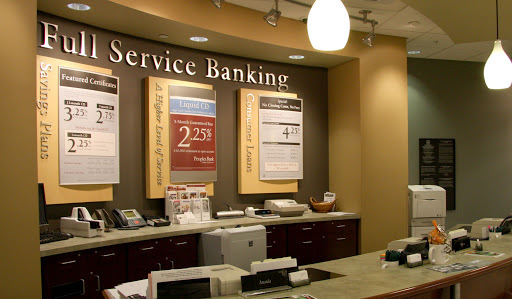
Throughout history, major events have created permanent, unexpected shifts in human behavior. People have been forced into lockdown to stop the spread of disease before; the long-term psychological effects of those quarantines have been studied, so we have some idea of what to expect. However, the length and global reach of this isolation are unmatched, and there is no doubt this traumatic event will produce permanent changes.
Here are three impacts of COVID-19 and their respective long-term outcome for community banks and credit unions.
Fear of public gatherings
After this pandemic has long passed, a generational shift will produce new preferences when it comes to public gatherings and face-to-face interactions. Following previous outbreaks in Asia, face masks became a normal and expected day-to-day accessory. With the fear of contagions and mandatory stay-at-home orders, people are becoming more comfortable replacing physical interactions with digital visits. The long-term shift will come as many start preferring it as a way to manage lingering fears of contracting a fatal disease. Perhaps you’ve already seen this fear play out on social media in emotional debates about whether or not a COVID-19 vaccine is required before reinstating sporting events, concerts, and other large public gatherings. In particular, subsets of the general population who are concerned about germs will be more sensitive to the risks involved.
The effect on FIs: Traffic at branches has been decreasing for years; however, fear combined with increased digital channel adoption will send this trend into overdrive. After all, it’s mostly older consumers who still use branches, and this age group will be understandably shaken by losing friends to COVID-19. However, older generations also value face-to-face service and prefer doing business with specific employees. Not only will video banking fill that service gap for this market, but adoption will also be easier than ever because so many grandparents have been using video to communicate with family during the quarantine.
We’ve said for years that consumers want to choose how they engage with their FI. If they can do it all digitally, more power to them. But in tumultuous times like now, people need more help from real people. Maybe they can’t pay their existing monthly loan payment due to reduced hours. Do they refinance the existing loan? Roll it into a HELOC? Find another solution? To solve this problem, they need a financial counselor, and that’s something credit unions and community banks can and should offer. Video banking supports that consultative relationship while still protecting the consumer and employees.
Economic shifts
I’m confident that the stock market and U.S. economy will survive and continue to lead the world; however, segments of the economy already affected by quarantine orders may not completely recover. Small restaurants, travel industries, commercial real estate, and auto industries are all likely to face a protracted slowdown.
The effect on FIs: Financial institutions that serve these industries will suffer resultant impacts on their businesses as well. Although markets shift and change every day, this change is so drastic and unexpected, we may see some financial institutions fail or merge for survival similar to the mortgage meltdown in the late 2000s. Those looking to thrive must find ways to economically provide their services. Again, we see video banking as a possible solution for cost-conscious service delivery.
Work from home
Now that a majority of U.S. workers are gaining remote work experience, a return to the office will be a tough sell. Let’s start with the dress code: sales figures from Walmart that report the chain selling out of tops but not pants. Americans have happily embraced new workplace standards that only require professionalism from the waist up and allow for interruptions from children during meetings.
The effect on FIs: Like everyone else in America, financial services employees will want to continue to work from home. Working from home and the schedule flexibility it will bring could create the need for, and ability to offer, longer service hours. While that might be possible from a technology standpoint, security will be an issue for FIs, because video conferencing apps like Zoom they weren’t built to handle secure financial information and workflows. We’ve helped our customers use the POPi/o platform to not only serve customers securely but also support employees who must now work from home and handle sensitive consumer information.
Change isn’t easy for anyone. Big external events (like a global pandemic) create new circumstances and could be the stimulus for permanent change. Good luck to you and your financial institution as you navigate the new normal post-Covid-19.
